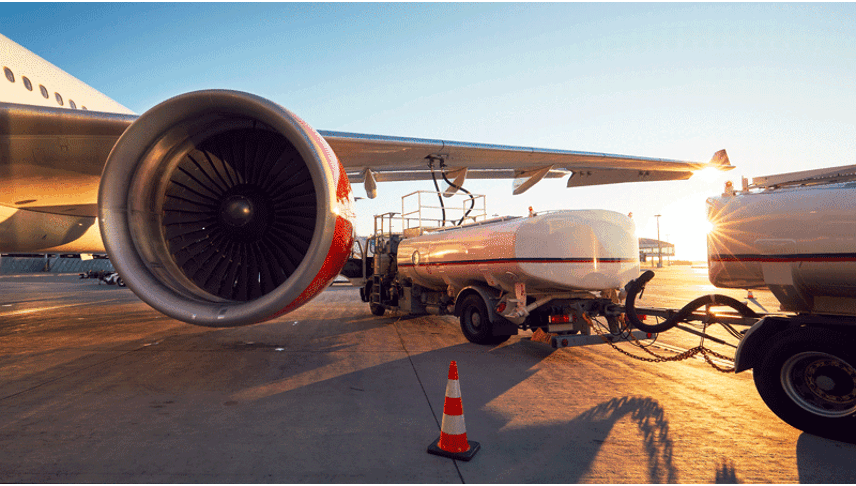Register for free and continue reading
Join our growing army of changemakers and get unlimited access to our premium content

The Committee has this week published a new report as part of its inquiry into ‘fuelling the future’. It states that, while the Government’s top-line commitment to decarbonising all modes of transport either in line with the 2050 net-zero target or more rapidly is welcome, this must be built upon with specific pathways for certain technologies.
It argues that a “technology-neutral” or “technology-agnostic” stance is not providing investors with the confidence they need to support the growth of key industries such as alternative fuels and electrification. Without proper investment, these industries will not be able to grow and deliver the necessary levels of products to meet legally binding carbon targets, the report warns.
In the aviation industry, the report comes down firmly in support of alternative fuels, often referred to as sustainable aviation fuels (SAF). The Committee wants to see a new business model launched to incentivise SAF investment, modelled on the Contracts for Difference auctions for renewables.
This is perhaps to be expected, given that the Government heavily supports SAF in its own ‘Jet Zero’ strategy, which was developed with significant influence from airlines and the wider aviation industry.
But SAF is an extremely controversial topic. Research published by the Royal Society this week questioned whether SAF production will scale up as rapidly as many policymakers and businesses are hoping. It also warned that, if production does scale, there will likely be many fuels with poor life-cycle impacts on the environment in the mix.
The Committee’s report does note that there needs to be strict controls on sustainability-related claims made regarding the SAF supply chain, beyond the emissions standards already in place and in the works. Biofuels, when produced with poor supply chain management, can contribute to challenges such as food insecurity and soil degradation caused by mono-cropping. Synthetic waste-derived fuels avoid these land-use issues, but what will the supply chain look like in decades to come if waste reduction targets are met?
However, the Committee ultimately does not see any alternative to SAF becoming commercially viable in the near-term. It hails SAF for the fact it can be used with little to no changes in airport infrastructure or aircraft – at least in blends. Current international regulations limit SAF blends to 50% but most airports and airlines use far smaller proportions of SAF. A SAF mandate requiring blends of at least 10% by 2030 is in the works in the UK.
The Committee’s report notes that electric planes could soon be commercialised for short-haul flight, particularly for smaller aircraft, but that commercialisation for large, long-haul flights is likely decades away if at all possible. This was the same conclusion of the Royal Society. The Committee’s report argues that hydrogen could have a role to play but notes that it is less mature than SAF.
These conclusions have been welcomed by industry body Sustainable Aviation. A spokesperson said: “It is absolutely right that SAF must play a major role in decarbonising aviation now and to 2050, particularly on long-haul flights which account for three-quarters of global aviation emissions. SAF is a drop-in fuel that can be used in today’s engines meaning it is a here and now solution if the Government supports its scale-up.”
From planes to trains and automobiles
The report additionally explores technology pathways for reducing the use of fossil fuels by heavy goods vehicles, ships and trains. In all three of these fields, it states that there is not a “single obvious solution” to decarbonisation, and urges the Government to get clear on which mix of technologies it will support.
Under the Transport Decarbonisation Plan, new HGVs which are not zero-emission will be banned from sale by 2040. There is a 2035 deadline for lighter vehicles under 26 tonnes, and the 2040 deadline for the heaviest models. This latter category is of most concern to the Committee, given how challenging it is to electrify.
Regarding rail, the Committee has concluded that electrification will likely play the biggest role. The Transport Decarbonisation Plan commits the UK to ending the use of all diesel-only trains by 2040, including freight, but just 38% of the rail network is fully electrified. As such, a credible plan to electrify at pace is needed, the Committee states. Its report also argues that pure-electric trains will not be the most economic option for all railways and recommends an assessment of alternatives for rural areas in particular.
Committee chair Iain Stewart MP, the Conservative MP for Milton Keynes South, said: “The Committee heard time and again from experts that the Government’s solution-neutral approach was understandable up to a point. But the time has now come for ministers, using the knowledge of alternative fuels we now have across all modes of transport, to show leadership and pick winners.”
Related article: Wizz Air, Heathrow and Boeing unveil SAF plans


Please login or Register to leave a comment.